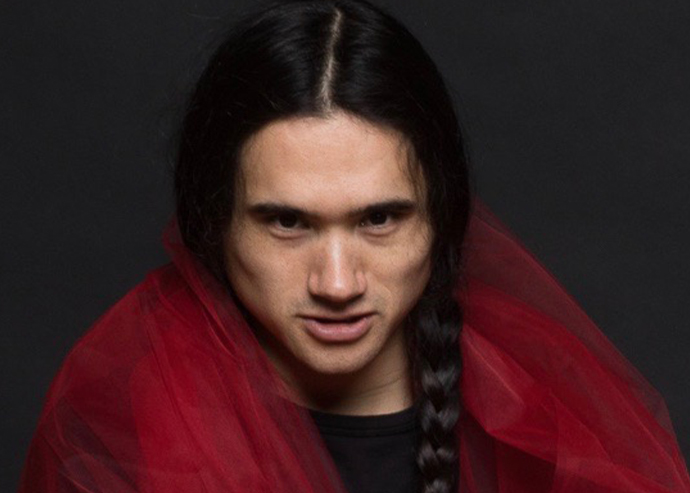
Doctor of Philosophy in Creative Practice and Critical Inquiry, Harvard University ’28—expected
Certificate in Neuroscience, University of Pennsylvania ’23
Master of Arts in Music Theory and Composition, Tufts University ’19
Bachelor of Arts in Interdisciplinary Performance Studies, Pitzer College ’13
From playing in a punk rock band as a teenager to creating musical performances designed to challenge preconceptions, Micah Huang (Certificate in Neuroscience ’23) has always been interested in the intersection of musical composition and social engagement. “Music is kind of like an emotional lubricant for people,” they reflect. Their interest in neuroscience emerged from a desire to better understand what happens on a biological level when people experience auditory or aesthetic cues. After exploring cognitive science independently for a year, they recall, “I came to the conclusion that I needed to devote more serious study to it. Penn LPS Online was perfect for me because the program was a manageable size, and really good quality.” Micah decided to take one course—the introductory course—but ultimately completed four courses to earn the Certificate in Neuroscience.
The first required course for Penn LPS Online neuroscience students is NEUR 1000: Introduction to Neuroscience. “I had never done an online course, and I marveled at the formatting,” says Micah. “It felt thoughtfully designed so that, while it was challenging, I was able to make the space and time that I needed to rewatch lectures and really learn the material.” As an audio engineer and electric guitar player, they say, “I was blown away by the fact that the signals we work with in audio are actually quite similar to the signals that pass through the nervous system, and they also convey information.” Throughout their coursework, Micah found opportunities to incorporate neuroscience concepts and frameworks into their ongoing music practice: for example, the signal analogy gave them an idea for incorporating the electrical activity of the brain into a musical performance. In NEUR 2000: Behavioral Neuroscience, they learned how owls locate things in space through binaural spatial audio, and were able to incorporate a similar strategy into a project that uses binaural audio captures from the field. “Telling an immersive story through audio is challenging,” they say. “If I hadn’t gone really in-depth on how binaural spatialization works, I wouldn’t have felt as confident. Who knew that owl audition would be the key to understanding this solution for auditory storytelling in my practice?” they laugh.
Certainly the ideal neuroscience course for a composer and audio engineer is NEUR 1600: The Neuroscience of Music, and Micah notes that they kept all the sources they read throughout the course. Topics included the different scale systems and harmonics that different cultures use, which Micah found enlightening for both their previous work on deprogramming social prejudices through music and for their own multinational family history. The course also discussed how and why certain types of tuning schemes have a calming effect while others are more stimulating or even agitating. “It got very, very technical, and as a musician, I got to nerd out really intensely,” they say. “Onstage, the audience is functionally a black box to you; you just don’t know their mental experience of a concert program. But the neuroscience perspective is that certain reactions are involuntary and independent of an individual audience member’s psychology. I think it’s productive for me to respect their psychological sovereignty while also trying to design the concert program to lead you through a guided experience.”
Nerding out intensely on the neuroscience of music led Micah to consider future educational opportunities in the field. “There’s so much potential in an environment that is aimed at learning. Each opportunity to study has been a huge infusion of stuff that has made my work a lot better,” they say. While they plan to continue learning about the biology and psychology of auditory experience, it was important to Micah to keep their creative practice at the center of whatever came next. They were accepted into a PhD in Creative Practice and Critical Inquiry at Harvard University, where they can continue exploring different musical traditions that don’t always receive academic attention—styles from modern rock and electronic dance music to historical Chinese music and American vernacular music—and pursue courses outside of music studies that deepen their understanding of what music is and how people experience it. “The neuroscience perspective has given me a way to articulate specifically, in concrete terms, effects and philosophies of music that have just been intuitive feelings for me in the past,” they say. “When I was putting together my application for this program, that helped me make some connections.”
“Learning how the environment affects the body on a biochemical level, how the nervous system takes information and tells the body how to respond, is very inspiring and validating,” they add. “The effect of that knowledge on me has been profound. It gives me a lot of hope.”
